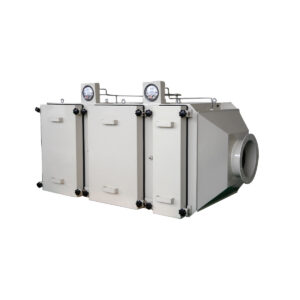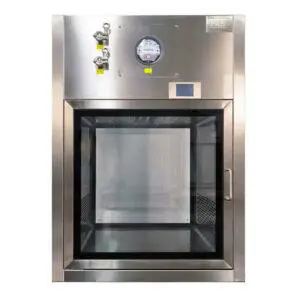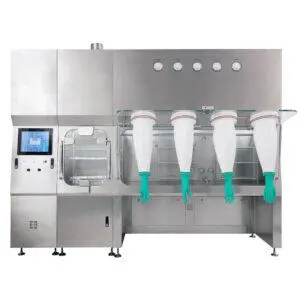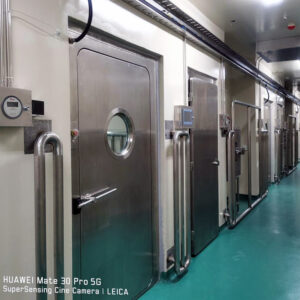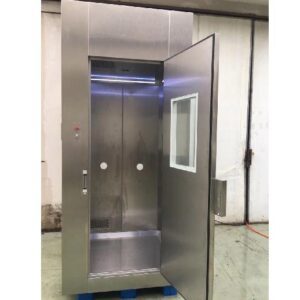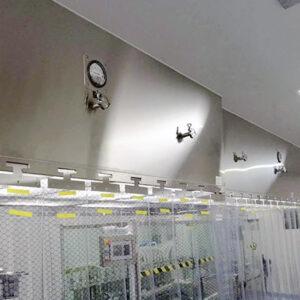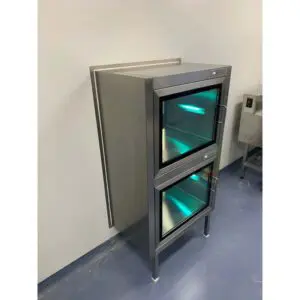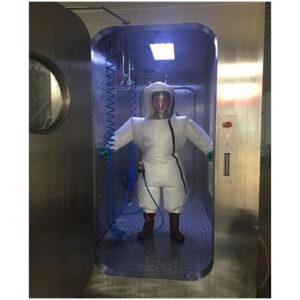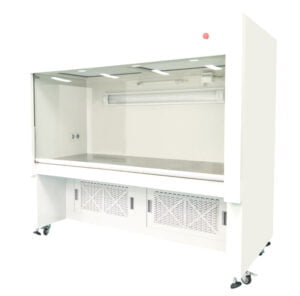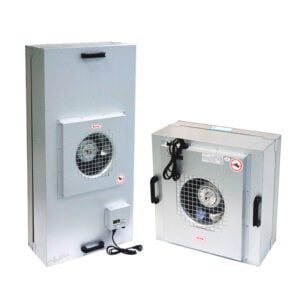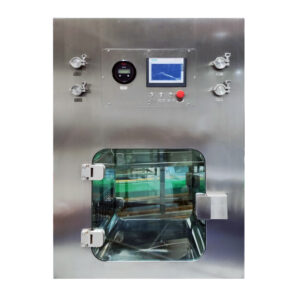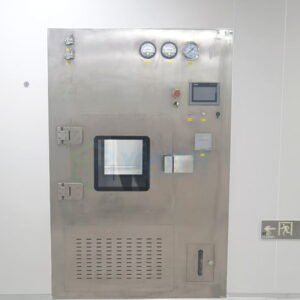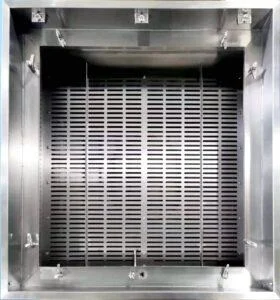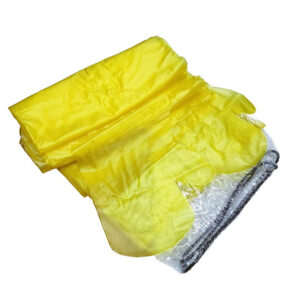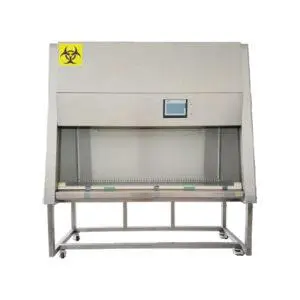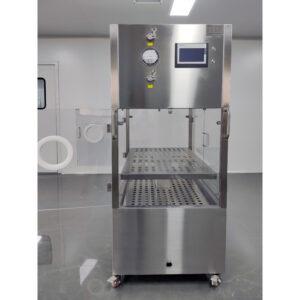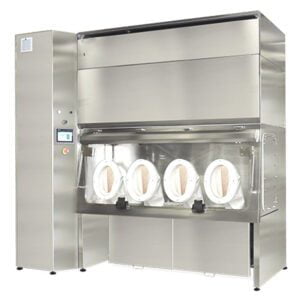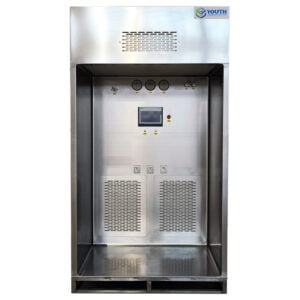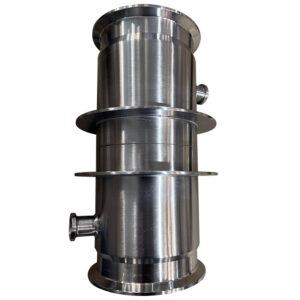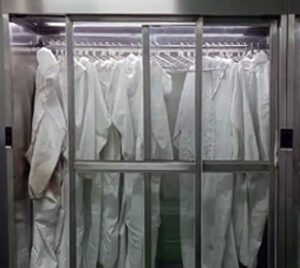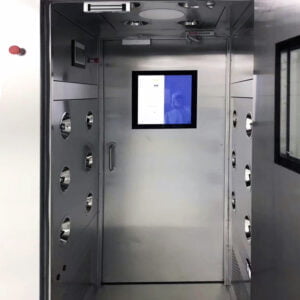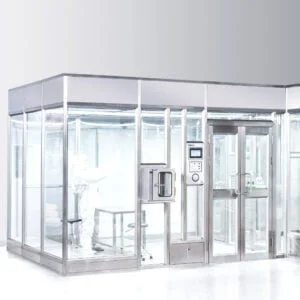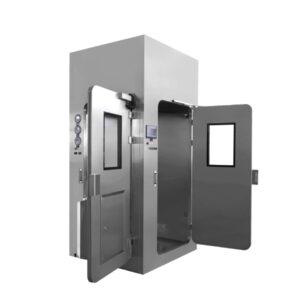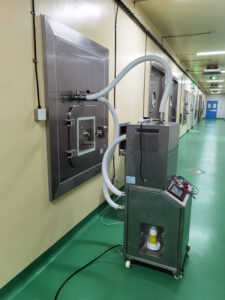When pharmaceutical manufacturers and research facilities require containment solutions for handling potent compounds, selecting the right BIBO suppliers becomes mission-critical. A recent industry survey revealed that 73% of facilities experienced containment breaches due to inadequate equipment selection, with financial implications exceeding $2.3 million per incident when factoring in production delays, regulatory investigations, and remediation costs.
These containment failures don’t just impact bottom lines—they jeopardize worker safety, compromise product integrity, and can trigger extensive regulatory scrutiny. For facilities handling high-potency APIs, cytotoxic drugs, or live viral vectors, the stakes couldn’t be higher. A single equipment failure during critical manufacturing phases can cascade into months of production shutdowns, regulatory holds, and damaged reputation within the pharmaceutical community.
This comprehensive evaluation guide provides decision-makers with proven frameworks for identifying best BIBO suppliers, establishing rigorous vendor selection criteria, and implementing evaluation processes that ensure long-term operational success. You’ll discover industry-tested methodologies, comparative analysis tools, and expert insights that transform complex supplier decisions into strategic competitive advantages.
What Makes BIBO Suppliers Essential for Modern Pharmaceutical Operations?
The pharmaceutical industry’s shift toward high-potency active pharmaceutical ingredients (HPAPIs) and personalized medicine has fundamentally transformed containment requirements. YOUTH Clean Tech industry data indicates that over 65% of new drug development programs now involve compounds requiring specialized containment protocols, driving unprecedented demand for sophisticated bag-in-bag-out filtration systems.
Critical Applications Driving BIBO Demand
Modern BIBO systems address three primary containment challenges in pharmaceutical environments. Bag in bag out suppliers must demonstrate expertise across these application areas to qualify as comprehensive solution providers.
Cytotoxic drug manufacturing represents the most demanding application, requiring containment levels below 0.1 μg/m³ for operator protection. Leading facilities report that properly specified BIBO systems achieve containment factors exceeding 1:10,000, with some installations demonstrating performance ratios approaching 1:100,000 under optimal conditions.
Viral vector production facilities present unique challenges combining biological containment with chemical protection requirements. Industry experts note that dual-purpose BIBO systems must maintain integrity across temperature variations from -80°C to +60°C while preserving filtration efficiency throughout extended operational cycles.
| Application Area | Containment Level Required | Typical System Complexity | Validation Requirements |
|---|---|---|---|
| Cytotoxic APIs | < 0.1 μg/m³ | High | FDA/EMA protocols |
| Viral Vectors | BSL-2/3 compliance | Very High | cGMP + biosafety |
| Hormonal Compounds | < 1.0 μg/m³ | Medium | USP 800 standards |
| Research Applications | Variable | Low-Medium | Internal protocols |
Technology Evolution and Supplier Capabilities
The transition from traditional containment methods to advanced BIBO systems reflects broader industry digitization trends. Contemporary suppliers integrate IoT monitoring, predictive maintenance algorithms, and real-time performance analytics into their containment solutions.
In our experience working with pharmaceutical facilities, suppliers demonstrating measurable ROI typically provide systems with 15-20% lower total cost of ownership compared to conventional alternatives. This advantage stems from reduced filter replacement frequency, automated monitoring capabilities, and enhanced operational efficiency.
How to Identify the Best BIBO Suppliers in Today’s Market?
Identifying top-tier BIBO suppliers requires systematic evaluation across technical capabilities, regulatory compliance, and long-term partnership potential. Industry research from the International Society for Pharmaceutical Engineering (ISPE) reveals that successful supplier partnerships typically share five critical characteristics.
Technical Excellence Indicators
Best BIBO suppliers distinguish themselves through measurable performance advantages and innovative engineering approaches. Primary evaluation criteria should focus on filtration efficiency, system reliability, and operational flexibility.
Filter performance specifications provide the foundation for technical assessment. Leading suppliers offer HEPA filtration achieving 99.97% efficiency at 0.3 microns, with premium systems incorporating ULPA filters reaching 99.999% efficiency. However, efficiency ratings alone don’t determine suitability—consider pressure drop characteristics, filter life expectancy, and maintenance requirements when evaluating technical specifications.
System integration capabilities separate industry leaders from commodity suppliers. Top vendors demonstrate expertise in connecting BIBO systems with existing facility infrastructure, including HVAC systems, process equipment, and facility monitoring networks. This integration expertise becomes particularly valuable during facility upgrades or expansion projects.
Regulatory Compliance and Quality Systems
Pharmaceutical applications demand suppliers maintaining comprehensive quality management systems aligned with international standards. ISO 14644 compliance for cleanroom applications represents the minimum acceptable standard, while leading suppliers typically maintain additional certifications including ISO 13485 for medical devices and cGMP manufacturing credentials.
“The supplier’s quality system maturity often predicts long-term partnership success better than initial product specifications. We’ve seen technically superior products fail due to inadequate quality support infrastructure.” – Dr. Sarah Mitchell, Biosafety Director, Global Pharmaceutical Consortium
Documentation quality serves as an early indicator of supplier reliability. Comprehensive suppliers provide detailed validation protocols, risk assessments, and regulatory compliance documentation supporting facility qualification processes. This documentation depth becomes critical during regulatory inspections and audit activities.
What BIBO Vendor Selection Criteria Should Guide Your Decision?
Effective BIBO vendor selection requires balanced evaluation across technical performance, commercial terms, and strategic partnership potential. Our analysis of successful procurement decisions reveals that facilities achieving optimal outcomes typically employ structured evaluation matrices weighing multiple decision factors.
Performance-Based Selection Framework
Technical performance evaluation should encompass both quantitative specifications and qualitative operational characteristics. Establish minimum performance thresholds for critical parameters including containment efficiency, filter life, pressure differential stability, and system availability metrics.
Containment verification testing provides objective performance comparison between suppliers. Request independent testing data demonstrating containment performance under realistic operational conditions, including challenge testing with surrogate materials and continuous monitoring during extended operation cycles.
| Evaluation Category | Weight (%) | Key Metrics | Minimum Standards |
|---|---|---|---|
| Technical Performance | 35% | Containment efficiency, reliability | 99.97% HEPA, >95% uptime |
| Regulatory Compliance | 25% | Certifications, documentation | ISO 14644, cGMP alignment |
| Commercial Terms | 20% | Pricing, payment terms | Competitive TCO analysis |
| Support Capabilities | 20% | Service network, response time | 24/7 support, <4hr response |
Long-Term Partnership Assessment
Supplier stability and growth trajectory significantly impact long-term partnership success. Evaluate financial stability, R&D investment levels, and market position when selecting BIBO vendors. Suppliers investing >8% of revenue in research and development typically demonstrate stronger innovation pipelines and technology advancement capabilities.
Geographic service coverage becomes increasingly important as pharmaceutical operations expand globally. Leading suppliers maintain service networks spanning multiple continents, enabling consistent support quality across international facilities. This global presence also facilitates standardization efforts and knowledge transfer between facilities.
Consider the supplier’s customer base diversity and market focus. Vendors primarily serving pharmaceutical applications typically offer deeper industry expertise and more relevant product development roadmaps compared to suppliers serving broader industrial markets.
How Does BIBO Manufacturer Evaluation Impact Long-Term Success?
Comprehensive BIBO manufacturer evaluation extends beyond initial product selection to encompass ongoing partnership dynamics, innovation capacity, and strategic alignment. Industry data suggests that facilities conducting thorough manufacturer evaluation experience 40% fewer operational disruptions and achieve 25% better total cost of ownership compared to price-focused selection approaches.
Manufacturing Quality and Capacity Assessment
Manufacturing capabilities directly influence product quality, delivery reliability, and long-term availability. Evaluate production facilities, quality systems, and capacity planning processes when assessing potential suppliers. Leading manufacturers typically maintain multiple production locations, providing supply chain resilience and geographic flexibility.
Quality management system maturity varies significantly across suppliers. Request facility audits or third-party quality assessments to verify manufacturing standards alignment with pharmaceutical industry requirements. Pay particular attention to change control processes, supplier qualification procedures, and continuous improvement initiatives.
Innovation and Technology Roadmap
Technology advancement pace in containment systems continues accelerating, driven by evolving pharmaceutical applications and regulatory requirements. Suppliers demonstrating strong innovation pipelines typically provide better long-term value through continuous product improvement and emerging technology integration.
In our experience, manufacturers investing in digital integration capabilities—including IoT monitoring, predictive analytics, and automated reporting—deliver measurably superior operational outcomes. These advanced capabilities become particularly valuable as facilities implement Industry 4.0 initiatives and digital transformation programs.
“We’ve observed that suppliers with dedicated pharmaceutical R&D teams consistently deliver more relevant innovations compared to those serving broader industrial markets. This focus translates into tangible operational advantages.” – Michael Chen, Director of Engineering, BioPharma Solutions International
Case study evidence from a major pharmaceutical manufacturer illustrates this principle. After switching to a specialized bag-in-bag-out BIBO system from a supplier with dedicated pharmaceutical focus, the facility achieved 35% reduction in filter replacement frequency and 28% improvement in operational efficiency metrics.
Which Geographic and Regional Factors Affect BIBO Supplier Selection?
Regional BIBO supplier landscapes vary significantly in terms of technical capabilities, regulatory alignment, and service infrastructure. Understanding these geographic dynamics enables more informed supplier selection decisions and optimized supply chain strategies.
Regional Supplier Strengths and Specializations
European suppliers typically excel in regulatory compliance and precision engineering, reflecting stringent EU pharmaceutical regulations and advanced manufacturing traditions. German and Swiss manufacturers particularly demonstrate strength in high-precision filtration systems and automated operation capabilities. These suppliers often provide superior documentation quality and validation support, though typically at premium pricing levels.
Asian suppliers, particularly those based in South Korea and Japan, increasingly demonstrate world-class technical capabilities combined with competitive cost structures. Recent market analysis indicates that leading Asian suppliers now match or exceed European technical standards while offering 20-30% cost advantages for equivalent functionality.
Service Network and Support Considerations
Local service capability significantly impacts operational efficiency and maintenance costs. Suppliers with regional service centers typically provide faster response times, reduced travel costs, and better understanding of local regulatory requirements.
North American suppliers often excel in application engineering and custom solution development, reflecting the region’s diverse pharmaceutical landscape and innovation culture. These capabilities become particularly valuable for facilities with unique containment requirements or specialized applications.
| Region | Primary Strengths | Typical Cost Position | Service Coverage |
|---|---|---|---|
| Europe | Regulatory compliance, precision | Premium | Excellent EU/UK |
| North America | Innovation, customization | High | Strong US/Canada |
| Asia-Pacific | Cost efficiency, manufacturing scale | Competitive | Expanding globally |
What Are the Key Technical Specifications to Evaluate?
Technical specification evaluation requires understanding both absolute performance parameters and relative system characteristics affecting operational efficiency. BIBO manufacturer evaluation must encompass filtration performance, system integration capabilities, and operational flexibility parameters.
Critical Performance Parameters
Filtration efficiency specifications provide the foundation for technical comparison, but evaluation should extend beyond basic HEPA ratings. Consider particle size distribution performance, pressure drop characteristics across filter life cycles, and efficiency maintenance under varying operational conditions.
Filter loading capacity significantly impacts operational costs and maintenance scheduling. High-capacity filters reduce replacement frequency and associated labor costs, while providing more consistent pressure differential performance throughout service life. Leading suppliers typically specify filter life in terms of both time duration and particle loading capacity.
System Integration and Automation Features
Modern BIBO systems increasingly incorporate automated monitoring, control systems, and integration capabilities with facility management networks. These features enhance operational efficiency while providing comprehensive documentation for regulatory compliance purposes.
Advanced suppliers offer systems with integrated pressure monitoring, filter life prediction algorithms, and automated alarm systems. These capabilities reduce manual monitoring requirements while providing early warning of maintenance needs or system anomalies.
In our experience implementing advanced monitoring systems, facilities typically achieve 15-20% reduction in maintenance labor costs while improving system reliability and regulatory compliance documentation quality. The initial investment in automated systems generates positive ROI within 18-24 months for most applications.
What Implementation and Support Factors Ensure Success?
Successful BIBO system implementation requires comprehensive planning, professional installation services, and ongoing support infrastructure. Top BIBO vendors distinguish themselves through implementation expertise, training programs, and long-term support commitment.
Installation and Commissioning Excellence
Professional installation significantly impacts system performance and longevity. Leading suppliers provide certified installation teams with pharmaceutical industry experience and comprehensive testing protocols. This expertise becomes particularly critical for complex installations involving multiple containment zones or integration with existing facility systems.
Commissioning and qualification support varies dramatically across suppliers. Comprehensive vendors provide IQ/OQ/PQ protocols aligned with pharmaceutical industry standards, including documentation packages supporting regulatory validation requirements. This support reduces facility validation workload while ensuring compliance with industry standards.
Training and Knowledge Transfer
Operator training quality directly correlates with long-term system performance and safety outcomes. Evaluate supplier training programs, documentation quality, and ongoing education support when making selection decisions. Leading suppliers typically provide multi-level training programs addressing operational, maintenance, and troubleshooting requirements.
“Comprehensive training programs distinguish professional suppliers from commodity vendors. Proper operator education prevents 80% of common system issues while maximizing equipment performance.” – Jennifer Rodriguez, Facility Manager, Advanced Therapeutics Manufacturing
Case study data from a specialty pharmaceutical manufacturer demonstrates this principle. Following comprehensive operator training from their BIBO supplier, the facility experienced 60% reduction in operational incidents and 45% improvement in filter life performance compared to previous suppliers with limited training support.
Conclusion
Selecting optimal BIBO suppliers requires systematic evaluation balancing technical excellence, regulatory compliance, and strategic partnership potential. The most successful procurement decisions integrate quantitative performance analysis with qualitative assessment of supplier capabilities, innovation trajectory, and long-term commitment to pharmaceutical market success.
Key selection criteria should emphasize containment performance verification, comprehensive quality systems, global service infrastructure, and demonstrated pharmaceutical industry expertise. While initial cost considerations remain important, total cost of ownership analysis typically reveals that premium suppliers deliver superior value through enhanced reliability, reduced maintenance requirements, and comprehensive support services.
Regional supplier dynamics continue evolving, with Asian manufacturers achieving technical parity while European suppliers maintain advantages in regulatory expertise and precision engineering. North American suppliers excel in innovation and custom application development, making geographic diversification an effective risk mitigation strategy for large pharmaceutical organizations.
The pharmaceutical industry’s continued evolution toward high-potency compounds and personalized medicine will further increase BIBO system sophistication requirements. Suppliers demonstrating strong R&D investment, digital integration capabilities, and pharmaceutical market focus position themselves most favorably for capturing future growth opportunities.
For facilities beginning supplier evaluation processes, establish clear performance thresholds, conduct thorough manufacturer assessments, and prioritize long-term partnership potential over short-term cost optimization. The investment in comprehensive supplier selection pays dividends through enhanced operational efficiency, regulatory compliance, and worker safety outcomes throughout equipment lifecycle.
What specific containment challenges does your facility face, and how might advanced BIBO solutions address these operational requirements while supporting your long-term strategic objectives?
Frequently Asked Questions
Q: What are the essential factors to consider when choosing the best BIBO suppliers?
A: The best BIBO suppliers are selected based on a combination of critical factors, including:
- Technical performance such as containment efficiency and filter housing specifications
- Material quality like bag construction and seam integrity
- Certifications including ISO 9001 and additional relevant quality management standards
- Manufacturing capabilities to ensure consistent supply and scalability
- Quality management systems verifying continuous process monitoring and improvement
These criteria ensure the supplier can meet technical, quality, and supply chain demands crucial for BIBO applications effectively.
Q: How does the vendor selection and evaluation process typically work for identifying top BIBO suppliers?
A: The vendor selection process for the best BIBO suppliers usually follows a structured approach:
- Define clear supplier qualification criteria related to technical, quality, and business requirements
- Issue requests for proposals (RFPs) including performance and risk assessment questions
- Evaluate supplier responses using scoring matrices involving cross-functional teams
- Conduct due diligence via reference checks, site visits, and financial assessments
- Negotiate terms and finalize contracts based on overall value, not just price
- Continuously monitor supplier performance post-selection to maintain standards
This process helps ensure an objective and strategic supplier choice aligned with your operational goals.
Q: Why is it important to assess manufacturing capabilities when selecting BIBO vendors?
A: Assessing manufacturing capabilities is vital because it guarantees supply reliability and product consistency. Key considerations include:
- Annual production volume to match demand
- Redundancy in manufacturing lines to avoid disruptions
- Technology investment to support quality and efficiency
- Lead time consistency and flexibility to scale operations
Evaluating these aspects ensures the selected supplier can handle your current and future volume needs without risking interruptions or quality issues.
Q: What role do quality management standards play in selecting the best BIBO suppliers?
A: Quality management standards are a foundational element in vendor evaluation as they reflect a supplier’s commitment to maintaining high-quality processes. The best BIBO suppliers typically hold certifications such as ISO 9001:2015 and may have additional specific standards like ISO 13485 or ISO 14644. These standards confirm systematic approaches to quality control, traceability, and continuous improvement, providing confidence that the supplier can reliably meet stringent technical and safety requirements.
Q: How can businesses ensure a long-term partnership with their BIBO suppliers?
A: To foster long-term partnerships with the best BIBO suppliers, companies should:
- Engage in open and transparent communication regarding expectations and challenges
- Establish detailed contracts that outline quality, delivery, and service requirements
- Monitor supplier performance against KPIs regularly and provide constructive feedback
- Encourage supplier innovation and continuous improvement initiatives
- Assess ESG compliance and sustainability to align values and reduce risks
This collaborative approach builds trust, ensures supply stability, and drives mutual growth.
Q: What are common challenges in the evaluation of BIBO vendors and how can they be addressed?
A: Common challenges include verifying technical claims, ensuring material compatibility, and assessing supplier resilience. These can be addressed by:
- Requesting comprehensive validation data and testing results from suppliers
- Conducting thorough due diligence including customer references and site audits
- Examining supplier contingency plans for risk mitigation
- Using multi-criteria scorecards to balance cost, quality, and risk factors
- Involving cross-functional teams for a well-rounded evaluation
Addressing these challenges rigorously helps identify reliable and technically capable BIBO vendors.
External Resources
BIBO Supplier Selection Guide | Vendor Qualification Process – This guide focuses on establishing qualification criteria for BIBO (Bag-In Bag-Out) suppliers, detailing technical performance requirements, quality management standards, and manufacturing capabilities assessment processes.
Vendor Rating: The Complete Procurement Guide For 2025 – An in-depth procurement guide addressing the essential components of vendor selection and evaluation, including criteria like quality, delivery, cost, and compliance, with best practices for building robust supplier rating systems.
Supplier Evaluation: Key Criteria and How To Perform One – Indeed – Outlines a structured process for supplier evaluation, including defining metrics, identifying potential vendors, and ongoing performance communication, relevant for comprehensive supplier selection strategies.
Evaluating vendor performance: Tips, tools, and resources – Offers practical advice for developing and executing a vendor review process, such as setting KPIs, collecting feedback, and using technology for effective evaluation.
Top 10 Supplier Evaluation Criteria – Provides a concise list of critical factors to consider when evaluating suppliers, emphasizing areas such as financial stability, quality, regulatory compliance, and sustainability.
Supplier Selection and Evaluation – Chartered Institute of Procurement & Supply (CIPS) – An authoritative resource discussing key steps in supplier selection and evaluation, offering frameworks and best practice approaches for procurement professionals.
Related Contents:
- GMP Compliant Air Filters | FDA Requirements Cleanroom Validation
- Cleanroom Air Filter Supplier Guide | Vendor Selection Criteria
- BIBO Safety Certifications: What You Need to Know
- Understanding BIBO | Hazardous Material Containment
- BIBO vs. Traditional Containment: Which is Better?
- BIBO System Regulations: Compliance Guide 2025
- Safe Chemical Handling with BIBO Systems
- Laminar Flow Cabinet Suppliers | Vendor Selection Guide
- Top 5 BIBO Containment Solutions for 2025
